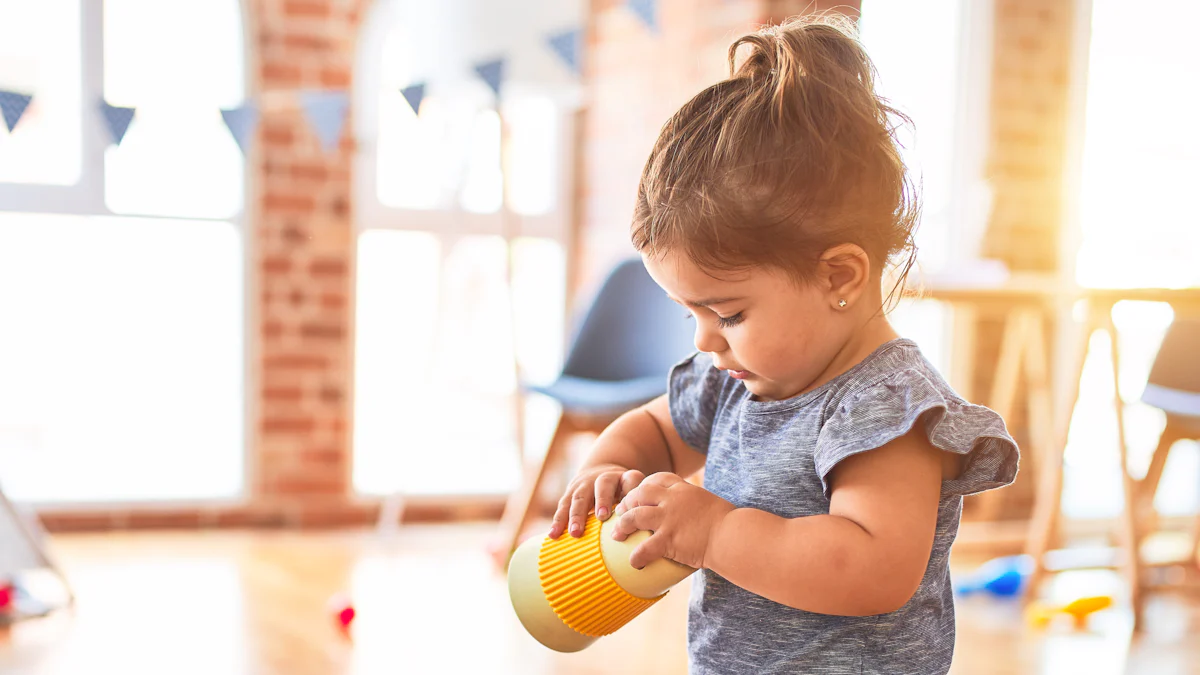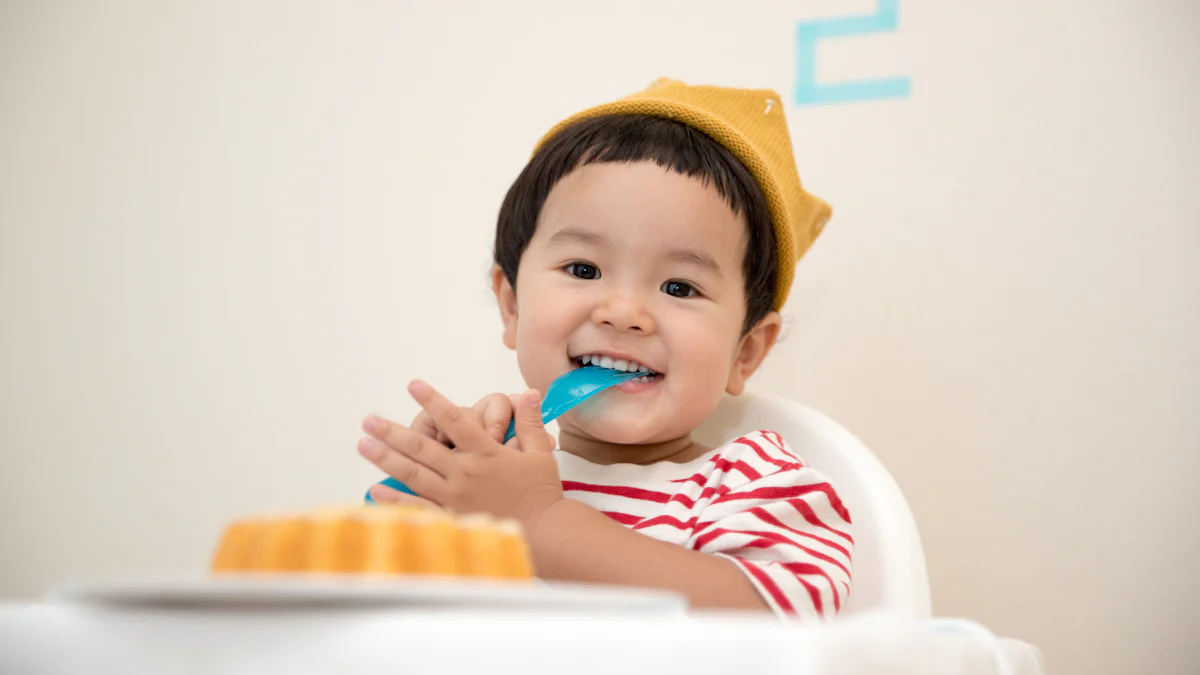The Importance of Encouraging Independence in Toddlers

Encouraging independence in toddlers transforms daily routines into opportunities for growth. Independence empowers toddlers to explore the world with confidence. Early independence fosters self-confidence and resilience. Toddlers learn to trust their abilities. This trust builds a strong foundation for future challenges. Encouraging independence helps toddlers develop problem-solving skills. These skills contribute to mental health and emotional well-being. Each small step towards independence shapes a child's self-identity. Parents play a crucial role in this journey. Providing support and encouragement nurtures a sense of control and autonomy.
Understanding Independence in Toddlers
What is Independence in Toddlers?
Definition and characteristics
Independence in toddlers means the ability to perform tasks without assistance. Toddlers show independence by making choices. Simple decisions like selecting toys or clothes reflect independence. Independent toddlers often display curiosity. Exploration and experimentation characterize independent behavior.
Developmental milestones
Developmental milestones mark progress toward independence. Walking without support signifies physical independence. Speaking simple sentences shows communication skills. Using utensils during meals demonstrates self-feeding abilities. Toilet training represents a significant milestone. Each milestone builds confidence and autonomy.
Why is Independence Important?
Long-term benefits
Independence offers long-term benefits for toddlers. Confident children face challenges with courage. Independent problem-solving enhances critical thinking. Self-reliance fosters resilience in difficult situations. Children develop a strong sense of self-worth. Independence prepares children for future responsibilities.
Impact on growth and development
Independence impacts growth and development positively. Children learn to trust their instincts. Decision-making skills improve with practice. Social interactions become more meaningful. Emotional regulation strengthens through independent experiences. Independence supports overall mental and emotional well-being.
Benefits of Encouraging Independence

Building Self-Confidence
How independence boosts confidence
Encouraging independence in toddlers builds self-confidence. Encouraging independence in toddlers builds self-confidence. Children feel capable when they accomplish tasks alone. Completing simple chores gives a sense of achievement. Confidence grows with each independent action. Children learn to trust their abilities.
Examples of confidence-building activities
Parents can introduce activities to boost confidence. Allow toddlers to dress themselves. Encourage choosing outfits for the day. Provide opportunities for self-feeding during meals. Simple puzzles and games promote decision-making. Each activity strengthens self-belief.
Enhancing Problem-Solving Skills
Role of independence in problem-solving
Independence enhances problem-solving skills in toddlers. Children face challenges with curiosity. Independent thinking leads to creative solutions. Problem-solving becomes a natural part of play. Children learn to navigate obstacles confidently.
Scenarios illustrating problem-solving
Imagine a toddler building a block tower. The tower falls, but the child tries again. Each attempt teaches balance and patience. Another scenario involves finding a lost toy. The child searches different places independently. These experiences develop critical thinking.
Supporting Mental Health
Independence and emotional well-being
Encouraging independence supports emotional well-being. Children feel secure when trusted with tasks. Independence fosters a sense of control. Emotional resilience grows through self-reliance. Children express emotions with confidence.
Positive mental health outcomes
Positive mental health outcomes emerge from independence. Children develop strong self-esteem. Independence reduces anxiety in new situations. Social interactions become more meaningful. A sense of autonomy enhances overall happiness.
Practical Ways to Encourage Independence

Independent Play
Importance of play in fostering independence
Independent play serves as a vital tool for encouraging independence in toddlers. Children explore their surroundings through play. This exploration fosters creativity and imagination. Independent play allows children to make decisions. Decision-making builds confidence and autonomy. Children learn to entertain themselves without constant supervision. This self-entertainment enhances problem-solving skills.
Tips for encouraging independent play
Create a safe play area for children. A designated space encourages exploration. Offer a variety of toys that stimulate curiosity. Rotate toys regularly to maintain interest. Set a routine for independent playtime. Consistent routines help children feel secure. Provide positive reinforcement when children play independently. Praise boosts confidence and encourages further exploration.
Self-Help Tasks
Age-appropriate tasks for toddlers
Introduce age-appropriate tasks to foster independence. Simple tasks build self-reliance. Encourage children to dress themselves. Selecting clothes promotes decision-making. Allow children to brush their teeth with supervision. This task develops personal hygiene habits. Involve children in meal preparation. Stirring ingredients or setting the table teaches responsibility.
Encouraging self-reliance through daily activities
Incorporate self-help tasks into daily routines. Encourage children to tidy up their toys. Cleaning up instills a sense of responsibility. Allow children to pour their own drinks. Pouring enhances coordination and control. Encourage children to put on their shoes. This task builds fine motor skills and independence. Celebrate small achievements to boost confidence. Recognition reinforces self-reliant behavior.
Creating a Supportive Environment
Setting up a safe and encouraging space
A supportive environment plays a crucial role in encouraging independence. Childproof the home to ensure safety. Safety allows children to explore freely. Arrange furniture to create open spaces. Open spaces promote movement and exploration. Provide child-sized furniture and tools. Appropriate sizes empower children to complete tasks independently.
Balancing guidance and freedom
Strike a balance between guidance and freedom. Offer choices to empower decision-making. Choices foster a sense of control. Provide gentle guidance when needed. Guidance helps children navigate challenges. Allow children to experience natural consequences. Experiencing consequences teaches valuable lessons. Encourage persistence and patience in tasks. Persistence builds resilience and determination.
Challenges and Solutions
Common Challenges
Resistance to independence
Toddlers often resist independence. Children feel comfortable with familiar routines. New tasks can seem daunting. Fear of failure creates hesitation. Parents may notice reluctance in trying new activities. Encouragement helps toddlers overcome this resistance.
Overcoming parental anxiety
Parents experience anxiety about children's independence. Concerns about safety arise frequently. Worry about children's ability to handle tasks independently is common. Parents fear mistakes or accidents. Trusting children's capabilities becomes difficult. Support from other parents can ease these concerns.
Effective Solutions
Strategies for gradual independence
Gradual steps lead to successful independence. Start with simple tasks. Allow children to choose clothes. Encourage self-feeding during meals. Introduce more complex activities over time. Celebrate small successes to build confidence. Consistency fosters a sense of achievement.
Encouraging persistence and patience
Persistence and patience are key to independence. Encourage children to try again after setbacks. Praise efforts rather than outcomes. Model patience in daily interactions. Provide opportunities for problem-solving. Offer gentle guidance when needed. Celebrate perseverance in overcoming challenges.
The Role of Parents in Fostering Independence
Being a Role Model
Demonstrating independent behavior
Parents serve as the first role models for toddlers. Demonstrating independent behavior sets a powerful example. Parents handle daily tasks with confidence and efficiency. Children observe these actions and learn from them. Completing chores, making decisions, and solving problems independently inspire toddlers. Parents show that independence leads to success and satisfaction. Children mimic these behaviors and develop their own sense of autonomy.
Encouraging exploration and curiosity
Parents encourage exploration and curiosity by providing opportunities. Creating a safe environment allows toddlers to explore freely. Parents introduce new experiences and activities regularly. Curiosity grows when children encounter diverse situations. Parents ask open-ended questions to stimulate thinking. Encouragement to explore fosters a love for learning. Children gain confidence as they discover new things independently.
Providing Support and Encouragement
Positive reinforcement techniques
Positive reinforcement plays a crucial role in fostering independence. Parents praise efforts and accomplishments consistently. Acknowledging small achievements boosts self-esteem. Celebrating successes encourages toddlers to try new tasks. Parents use verbal affirmations and rewards to motivate children. Reinforcement creates a positive association with independent actions. Children feel valued and motivated to continue exploring their capabilities.
Celebrating small achievements
Celebrating small achievements builds a child's confidence. Parents recognize and applaud each step towards independence. Simple tasks like dressing or tidying up deserve celebration. Parents express pride and joy in their child's progress. Celebrations create a sense of accomplishment and motivation. Children feel encouraged to take on more challenges. Each achievement reinforces the belief in their abilities.
Encouraging independence in toddlers offers numerous benefits. Independence boosts self-confidence and problem-solving skills. Mental health improves through self-reliance. Gradual independence allows children to develop at their own pace. Parents play a crucial role in this journey. Implementing strategies fosters growth and resilience. Celebrate each small achievement with your child. Every step towards independence builds a strong foundation. Empower your child to explore and learn. Create a supportive environment for their development. Your encouragement nurtures a confident and capable individual.
See Also
Strategies for Handling Power Battles with Young Children
Parental Influence on Nurturing Kids' Inquisitiveness and Discovery
Promoting Inquisitiveness: The Importance of Inquiry in Child Growth
Effective Methods for Cultivating Self-Reliant Thought Leaders

